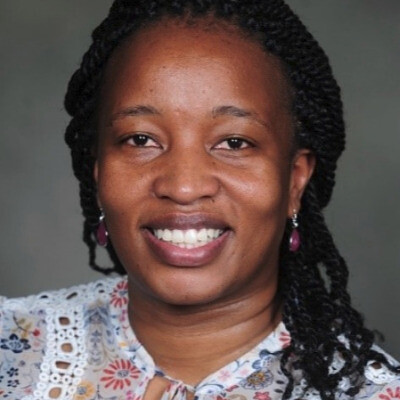It is well-established that interprofessional learning must occur in clinical learning environments (IOM, WHO). In 2023, leaders from the Doctor of Medicine (MD) curriculum and the Office of Interprofessional Practice and Education (OIPE) at The Ohio State University developed a new module for medical students to learn interprofessional (IP) collaborative competencies within a required clinical experience, Understanding Patients Within Populations (PWP). The “IPE in PWP: Identifying and Reflecting on Interprofessional Collaboration in Clinical Practice” module aims to enable immersive IP learning that prepares learners for IP collaborative practice. This module was designed for experiential learning and incorporates aspects of Kolb’s Experiential Learning Theory (KELT). In this module, students participate in interprofessional teams to provide patient care during clinical rotations (the concrete experience). Students are then instructed to reflect on those experiences through prompted writing assignments (reflective observation). Finally, students participate in small group in-person sessions where they discuss and think together about their experiences, reflections, and influences on their future practice (abstract conceptualization).
In this session, we will share our data and experiences assessing the impact of the module on medical students’ affective learning through a review of their reflective writing assignments. Affective learning, as defined by Bloom, is “changes in interest, attitudes, and values and the development of appreciations and adequate adjustment.” A sample of student reflection assignments from four cohorts of medical students (Autumn 2023-Autumn 2024) was evaluated using the validated Griffith University Affective Learning Scale (GUALS), which was developed based on Kralworth’s levels of affective learning. This assessment process helped us to understand the students’ experiences in the clinical learning environment and the impact of those experiences. Understanding the impact of this intervention on medical students is an essential step toward identifying educational activities that support the development of IP collaborative competencies in the clinical learning environment. This intervention is not resource-intensive and presents a low barrier to entry option for interprofessional education during clerkships.
By the end of this session, attendees will be able to appreciate the importance of affective learning for interprofessional practice, describe the application of Kolb’s experiential learning theory to an educational intervention, and distinguish levels of affective learning based on students’ reflective writing samples. Attendees will be encouraged to consider how the assessment of reflective writing can be valuable for understanding educational outcomes in their programs and informing curriculum development.
In support of improving patient care, this activity is planned and implemented by The National Center for Interprofessional Practice and Education Office of Interprofessional Continuing Professional Development (National Center OICPD). The National Center OICPD is accredited by the Accreditation Council for Continuing Medical Education (ACCME), the Accreditation Council for Pharmacy Education (ACPE), and the American Nurses Credentialing Center (ANCC) to provide continuing education for the healthcare team.
As a Jointly Accredited Provider, the National Center is approved to offer social work continuing education by the Association of Social Work Boards (ASWB) Approved Continuing Education (ACE) program. Organizations, not individual courses, are approved under this program. State and provincial regulatory boards have the final authority to determine whether an individual course may be accepted for continuing education credit. The National Center maintains responsibility for this course. Social workers completing this course receive continuing education credits.
The National Center OICPD (JA#: 4008105) is approved by the Board of Certification, Inc. to provide continuing education to Athletic Trainers (ATs).
This activity was planned by and for the healthcare team, and learners will receive Interprofessional Continuing Education (IPCE) credit for learning and change.


Physicians: The National Center for Interprofessional Practice and Education designates this live activity for AMA PRA Category 1 Credits™. Physicians should only claim credit commensurate with their participation.
Physician Assistants: The American Academy of Physician Assistants (AAPA) accepts credit from organizations accredited by the ACCME.
Nurses: Participants will be awarded contact hours of credit for attendance at this workshop.
Nurse Practitioners: The American Academy of Nurse Practitioners Certification Program (AANPCP) accepts credit from organizations accredited by the ACCME and ANCC.
Pharmacists and Pharmacy Technicians: This activity is approved for contact hours.
Athletic Trainers: This program is eligible for Category A hours/CEUs. ATs should claim only those hours actually spent in the educational program.
Social Workers: As a Jointly Accredited Organization, the National Center is approved to offer social work continuing education by the Association of Social Work Boards (ASWB) Approved Continuing Education (ACE) program. Organizations, not individual courses, are approved under this program. State and provincial regulatory boards have the final authority to determine whether an individual course may be accepted for continuing education credit. The National Center maintains responsibility for this course. Social workers completing this course receive continuing education credits.
IPCE: This activity was planned by and for the healthcare team, and learners will receive Interprofessional Continuing Education (IPCE) credits for learning and change.
Learners can claim CE credit by completing the Daily Evaluation.




